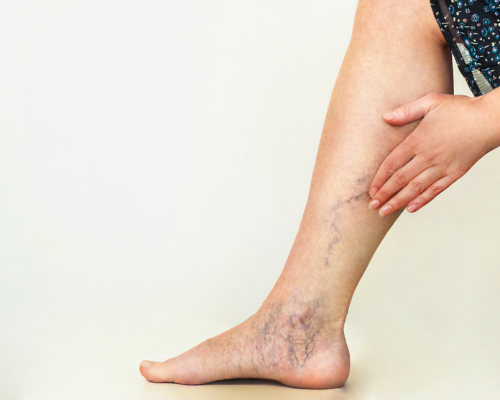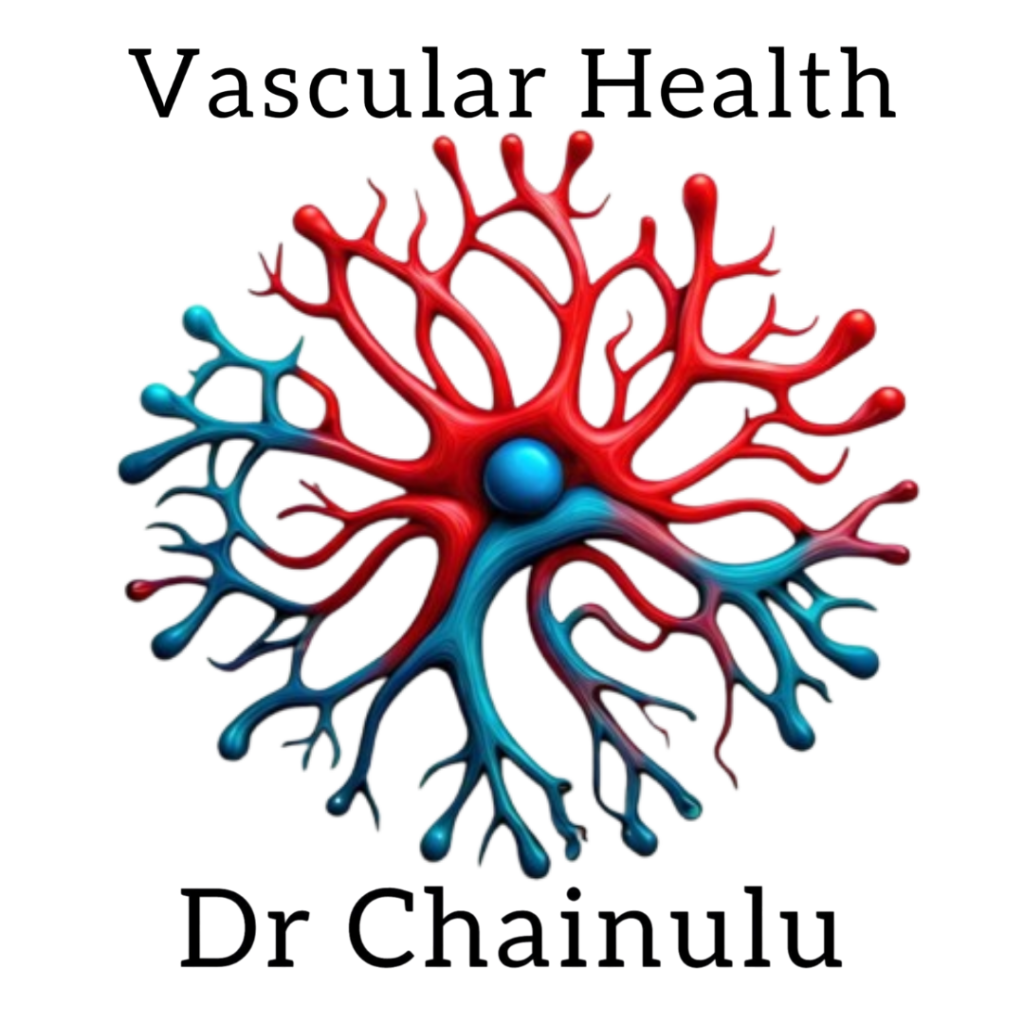Varicose Veins
What Are Varicose Veins?
Varicose veins are swollen, twisted veins that usually appear blue or dark purple. They often occur on the legs and can be both a cosmetic concern and a source of discomfort. These veins develop when the valves in your veins don’t work properly, causing blood to pool instead of flowing smoothly back to the heart.
Signs and Symptoms
If you have varicose veins, you might notice:
- Enlarged veins that are visible on the surface of your skin.
- Aching or heavy feeling in your legs, especially after standing or sitting for long periods.
- Swelling in your feet and ankles.
- Itching or irritation around the veins.
- Skin discoloration or changes near the affected area.
Causes of Varicose Veins
Several factors can increase your risk of developing varicose veins:
- Age: The risk increases as you get older due to wear and tear on vein valves.
- Gender: Women are more likely to develop varicose veins due to hormonal changes during pregnancy, menopause, or menstruation.
- Family History: If varicose veins run in your family, you may be more likely to develop them.
- Lifestyle: Prolonged standing or sitting, lack of exercise, and obesity can all contribute to the condition.
- Pregnancy: Increased blood volume and hormonal changes during pregnancy can lead to varicose veins.
Are Varicose Veins Serious?
While they are often harmless, varicose veins can sometimes lead to complications such as:
- Ulcers: Painful sores near the affected veins.
- Blood Clots: Deep vein thrombosis (DVT) can occur in rare cases.
- Bleeding: Veins close to the skin may burst and cause bleeding.
Treatment Options
At Dr. Chainulu’s clinic, we offer advanced treatments for varicose veins that are effective and minimally invasive:
- Lifestyle Changes
- Regular exercise and maintaining a healthy weight can improve blood circulation.
- Elevating your legs and avoiding prolonged standing or sitting can help reduce symptoms.
- Compression Stockings
- Special stockings that gently squeeze your legs to improve blood flow and reduce swelling.
- Minimally Invasive Procedures
- Sclerotherapy: A solution is injected into the vein, causing it to collapse and fade. This method is highly effective for smaller varicose veins and spider veins.
- Laser Treatments: Non-invasive laser energy closes off smaller varicose veins, making them gradually disappear over time. This procedure is quick and doesn’t require any downtime.
- Endovenous Ablation Therapy: Heat or radiofrequency is used to seal larger veins, redirecting blood flow to healthier veins. This technique is safe and has a high success rate.
- Surgical Options
- For severe cases, surgical procedures like vein stripping or ligation may be recommended. These methods are typically used when other treatments have not been successful.
Preventing Varicose Veins
While not all cases of varicose veins can be prevented, adopting certain habits can reduce your risk or prevent existing veins from worsening:
- Exercise Regularly: Activities like walking, cycling, or swimming can improve circulation.
- Maintain a Healthy Weight: Extra weight puts added pressure on your veins.
- Avoid Prolonged Standing or Sitting: Take breaks to move around and elevate your legs when possible.
- Wear Comfortable Clothing: Avoid tight clothing that can restrict blood flow.
- Elevate Your Legs: When resting, elevate your legs above the level of your heart to promote better blood flow.
Why Choose Dr. Chainulu for Your Treatment?
Dr. Chainulu is a highly experienced specialist dedicated to providing personalized care for varicose veins. Our clinic is equipped with state-of-the-art technology to ensure safe and effective treatments. We focus on helping you achieve relief from symptoms while improving the appearance of your legs.
Take the First Step Towards Healthier Legs
Don’t let varicose veins affect your confidence or comfort. Schedule a consultation with Dr. Chainulu today to learn more about your treatment options and start your journey to healthier legs. With our expert care and advanced techniques, you can enjoy relief from symptoms and regain your confidence.
Frequently Asked Questions
1. Can varicose veins come back after treatment?
Yes, while treatment can remove existing varicose veins, new ones may develop over time due to underlying factors like genetics or lifestyle.
2. Are varicose veins only a cosmetic issue?
No, while many people seek treatment for cosmetic reasons, varicose veins can cause discomfort and lead to complications if left untreated.
3. How long does it take to recover from treatment?
Minimally invasive procedures typically require little to no downtime. You can usually resume normal activities within a day or two.
4. Is treatment painful?
Most modern treatments are designed to minimize discomfort. Local anesthesia is often used for procedures, ensuring a pain-free experience.

Our Services
- Varicose Veins
- Deep Vein Thrombosis
- Vascular Malformation
- Aortic Aneurysms
- Mesenteric Vasculature
- Acute Limb Ischemia
- Peripheral Arterial Disease
- Stroke Prevention
- Angiography
- Vascular Access for Chemotherapy
- Spider Veins
- Glue Therapy
- Sclerotherapy
- AV Fistula
- Uterine Fibroid Embolisation
- Varicocele Embolisation
- Thyroid Ablation
- TACE
- Prostatic Artery Embolisation
- Varicocele Embolisation
